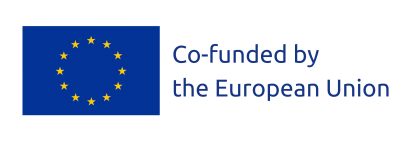Past Event! Note: this event has already taken place.
EURUS: “From Authoritarian to Environmental Regionalism: the Role of Regional International Organizations in Eurasia”
June 20, 2024 at 12:00 PM to 2:00 PM
| Location: | 3224 Richcraft Hall |
| Cost: | Free |
The Institute of European, Russian and Eurasian Studies (EURUS), Carleton University, is very pleased to host the lecture, “From Authoritarian to Environmental Regionalism: the Role of Regional International Organizations in Eurasia” with Dr. Anastassia Obydenkova from the Institute for Economic Analysis of the Spanish National Research Council and visiting professor at the Institute of European, Russian and Eurasian Studies, Carleton University.
This lecture is hosted by the Jean Monnet Chair “EU External Relations: Competing Regionalism in Eurasia”.
Registration is required. Click here to register at the EURUS event page.
Please note: A light lunch will be provided to those who have registered between 12:00-12:30PM, followed by the lecture.
Event description:
What are the implications of so-called “Authoritarian Regionalism” for promoting sustainable agenda in Eurasia? How do regional organizations advance (or impede) the environmental agenda across the post-Communist region? This lecture inspires us to answer these questions through establishing a deeper dialogue between studies of environmental regionalism and authoritarian regionalism.
The theory of “authoritarian regionalism”, also known as “non-democratic regional organizations” (NDROs), is relatively new and is still in its inception. So far, the majority of the literature has explored the causes, the nature, and some of the consequences of this phenomenon. The lecture picks up a few regional organizations (e.g., the EBRD, the AIIB, the Eurasian Development Bank) and studies how an agenda of sustainable development is approached in their legal documents as well as their social media. The lecture sheds more ample light on the newly emerging trends in sustainable development in Eurasia and new external influences such as, for example, the role of EBRD and their impact on post-Soviet Eurasia.
About the speaker:
Anastassia Obydenkova is a Research Scientist at the Institute for Economic Analysis of the Spanish National Research Council (IAE-CSIC) and affiliated Professor at Barcelona School of Economics. She holds a PhD in Political and Social Science from the European University Institute in Florence (Italy) and MA from the Central European University (Budapest-Vienna). She held multiple teaching and research appointments around the world, at Harvard University, Zurich University, Uppsala University, Gonzaga University in Florence, Hebrew University of Jerusalem, Barcelona Institute for International Studies, St. Louse University in Madrid, Princeton Institute for International and Regional Studies, and MacMillan Center at Yale University.
Dr. Obydenkova expertise are in comparative politics and international relations with a focus on geopolitical competition, regional international organizations, global environmental politics and sustainable development, regionalism, democratization, historical legacies, post-Communism, with area-focus on Eurasia and China. Her work on these topics had been published in such journals as European Journal of Political Research, Publius: The Journal of Federalism, World Politics, Comparative Political Studies, Post-Soviet Affairs, Review of International Organizations, Intelligence, Environmental Research, Democratization, and Journal of Democracy, etc. She is a (co-) author and editor of twelve books and special issues with the most recent ones published by Oxford University Press (2019), Routledge (2015; 2023; 2024) and Cambridge University Press (2021). She welcomes PhD students working on the related research topics. Her complete list of publications can be found here.
